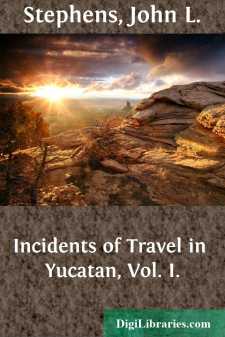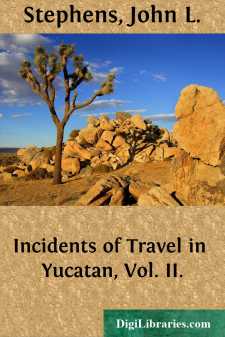Categories
- Antiques & Collectibles 13
- Architecture 36
- Art 48
- Bibles 22
- Biography & Autobiography 813
- Body, Mind & Spirit 142
- Business & Economics 28
- Children's Books 15
- Children's Fiction 12
- Computers 4
- Cooking 94
- Crafts & Hobbies 4
- Drama 346
- Education 46
- Family & Relationships 57
- Fiction 11828
- Games 19
- Gardening 17
- Health & Fitness 34
- History 1377
- House & Home 1
- Humor 147
- Juvenile Fiction 1873
- Juvenile Nonfiction 202
- Language Arts & Disciplines 88
- Law 16
- Literary Collections 686
- Literary Criticism 179
- Mathematics 13
- Medical 41
- Music 40
- Nature 179
- Non-Classifiable 1768
- Performing Arts 7
- Periodicals 1453
- Philosophy 64
- Photography 2
- Poetry 896
- Political Science 203
- Psychology 42
- Reference 154
- Religion 513
- Science 126
- Self-Help 84
- Social Science 81
- Sports & Recreation 34
- Study Aids 3
- Technology & Engineering 59
- Transportation 23
- Travel 463
- True Crime 29
John L. Stephens
John L. Stephens was a prominent American explorer, diplomat, and writer, best known for his pioneering work in documenting ancient Mesoamerican civilizations. Along with architect Frederick Catherwood, Stephens extensively explored the ruins of the Maya civilization, and his detailed accounts were published in books such as "Incidents of Travel in Central America, Chiapas, and Yucatán" and "Incidents of Travel in Yucatán." These works brought widespread attention to the Maya ruins, significantly influencing the field of archaeology. Stephens also played a key role in the planning and promotion of the Panama Railroad, an essential precursor to the Panama Canal.
Author's Books:
Sort by:
by:
John L. Stephens
Embarcation.—Fellow-passengers.—A Gale at Sea.—Arrival at Sisal.—Ornithological Specimens.—Merida.—Fête of San Cristoval.—The Lottery.—A Scene of Confusion.—Principle of the Game.—Passion for Gambling.—A deformed Indian. The reader of my "Incidents of Travel in Central America, Chiapas, and Yucatan," may remember that the researches of Mr. Catherwood and myself in the...
more...
by:
John L. Stephens
On the twenty-fourth of January we left Nohcacab. It was a great relief to bid farewell to this place, and the only regret attending our departure was the reflection that we should be obliged to return. The kindness and attentions of the padrecito and his brother, and, indeed, of all the villagers, had been unremitted, but the fatigue of riding twelve miles every day over the same ground, and the...
more...



